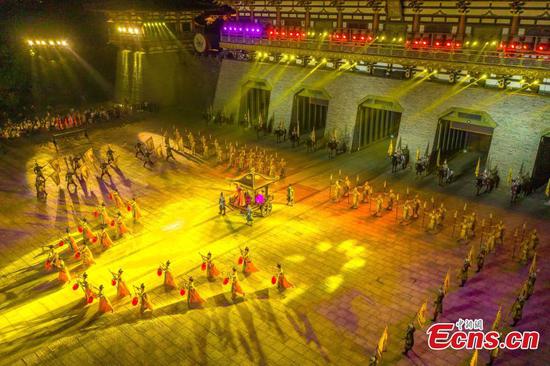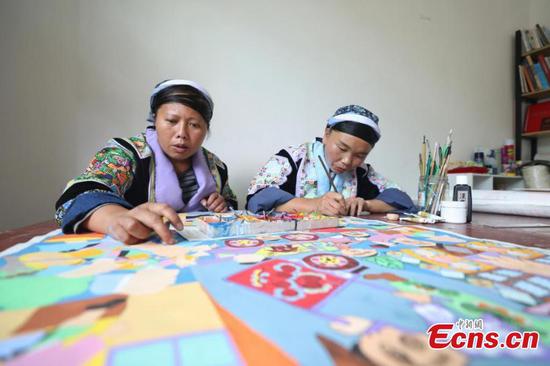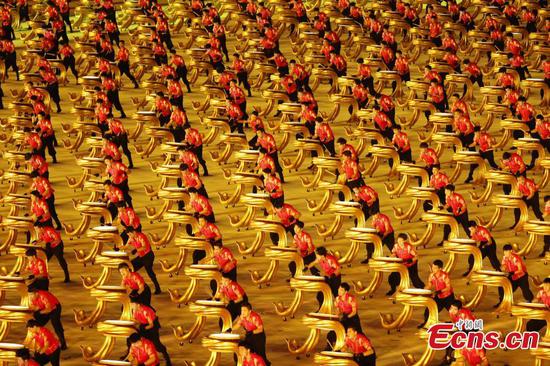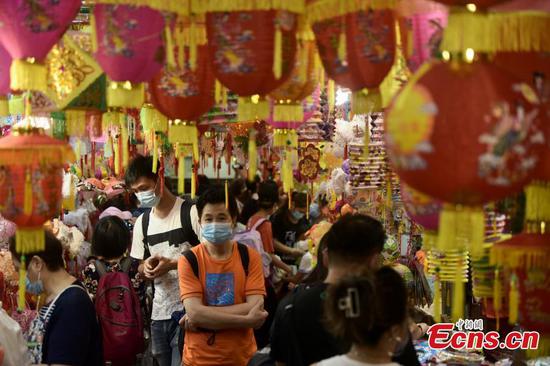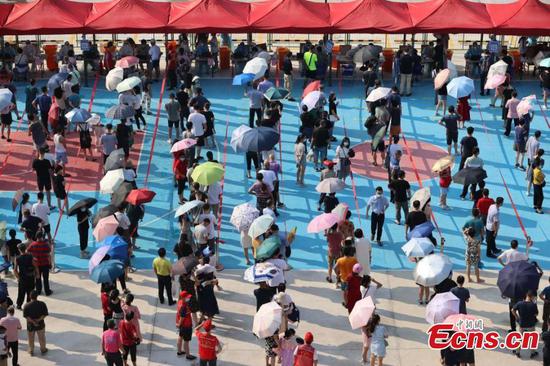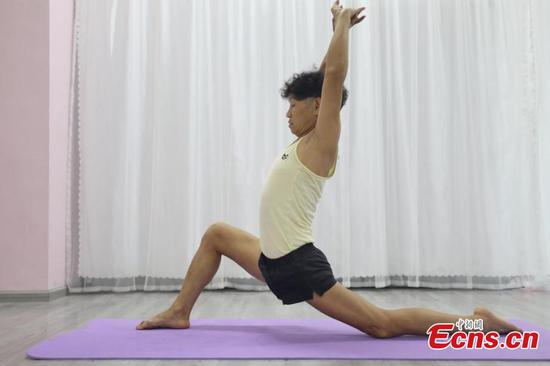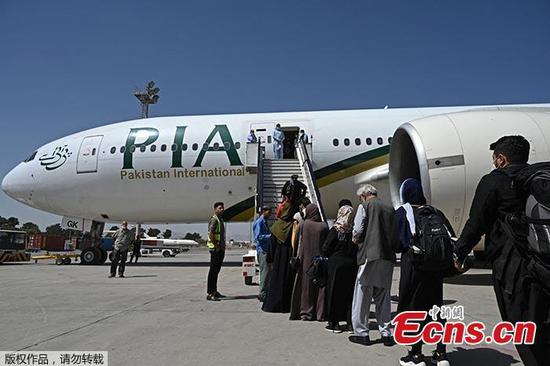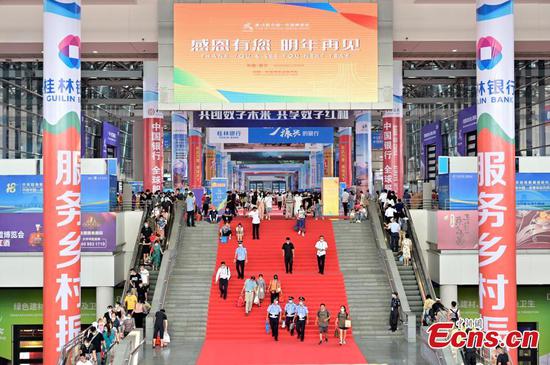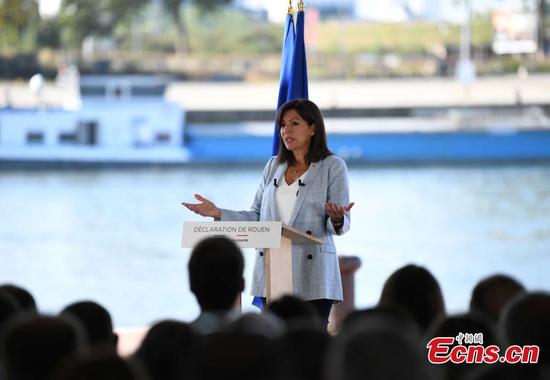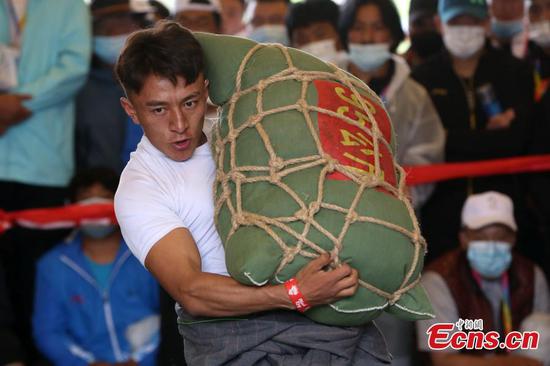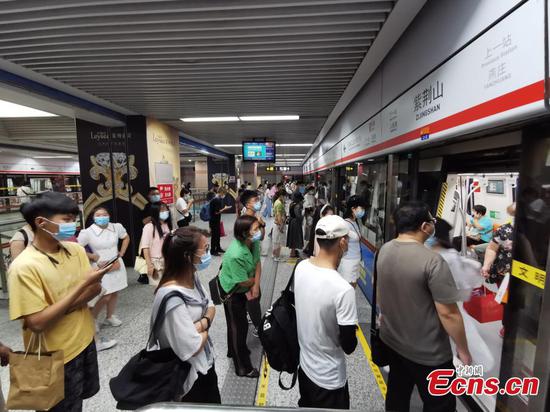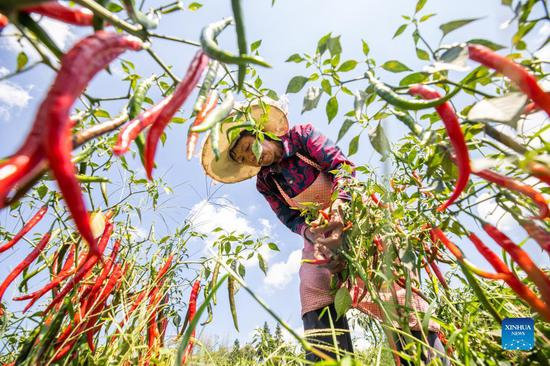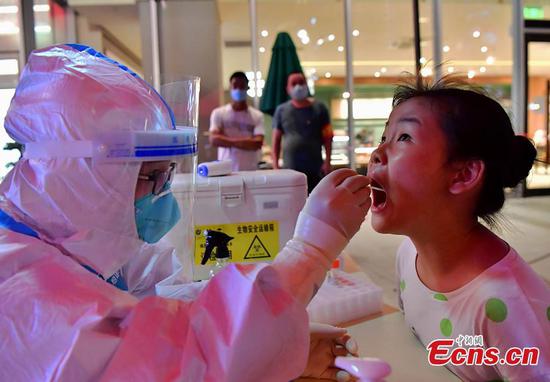
A panoramic view of the financial area in Hong Kong. (Photo/Xinhua)
Young people in the Hong Kong and Macao special administrative regions are expected to benefit from eight new supportive measures unveiled on Thursday that provide them with more opportunities for education, employment and exchanges on the Chinese mainland.
The measures, announced on Thursday at a symposium in Hong Kong, were put forward by the All-China Youth Federation, a national youth organization.
The initiatives include providing 15,000 internship positions and 30,000 exchange opportunities on the mainland to Hong Kong's and Macao's young people over the next five years.
The measures also pledge to offer 12,000 jobs for young people in the two SARs and support at least 120 entrepreneurship projects initiated by Hong Kong and Macao young people in the next five years.
In addition, young people will have more opportunities to apply for scholarships and awards offered by mainland organizations and participate in national youth technology competitions, according to the measures.
A series of services will also be provided to help the young people better integrate into the Guangdong-Hong Kong-Macao Greater Bay Area. The services include the launch of a service hotline, the establishment of a service agency oriented to young people and booklets providing Greater Bay Area information.
During the symposium, Kan Baokui, director of the coordination department of the All-China Youth Federation, said that since October, young people in Hong Kong have been able to log in to the mainland job-seeking website izhanchi to check recruitment information specifically offered to Hong Kong university students.
As of Sept 10, enterprises in Guangdong, Zhejiang, Hainan and Fujian provinces and Shanghai had posted 1,309 job vacancies for young people in Hong Kong. The employers include such industry leaders such as People's Insurance Co of China and China Poly Group.
Mainland cities will continue to provide high-quality jobs to Hong Kong's young people in the months ahead, Kan said.
The symposium was attended by more than 150 representatives of Hong Kong's young people, as well as scholars, educators and officials from the central government and Hong Kong government.
Liu Aiping, secretary-general of the All-China Youth Federation, expressed the hope that the measures will broaden the ways by which Hong Kong's young people can seek opportunities on the mainland. He said he also hopes that the new measures will strengthen mutual understanding between the mainland and Hong Kong's young people.
Caspar Tsui Ying-wai, Hong Kong's secretary for home affairs, and Zhang Zhihua, director of the Department of Youth Affairs of the central government's liaison office in the Hong Kong SAR, called on local young people to grasp opportunities arising from the measures and proactively integrate into the nation's development.
The symposium also included a panel discussion attended by local educators and young people, and a sharing session featuring the experiences of young people who had lived and worked on the mainland.
In the panel discussion, they exchanged views on topics such as how to deal with cultural differences between mainland and Hong Kong young people, and how to better support development in the Greater Bay Area.
A young Hong Kong person who works for a technology company on the mainland told the sharing session in a video speech that the working experience on the mainland has not only offered him an insight into the most advanced technology of the nation, but also provided him with a brighter career path.
The symposium was jointly held by the Hong Kong United Youth Association, the Secretariat of the All-China Youth Federation and relevant departments of the Hong Kong government and the central government's liaison office in the Hong Kong SAR.









